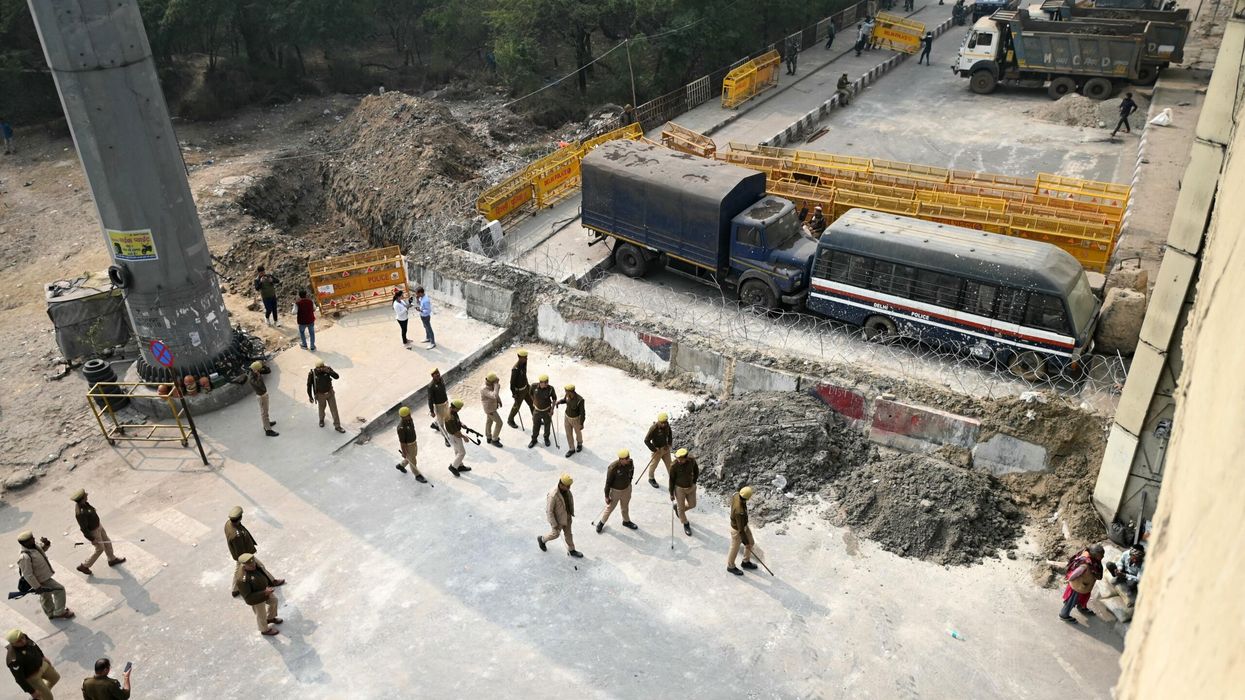Indian riot police deployed tear gas on Wednesday (14) against groups of farmers driving tractors who attempted to break through heavily fortified roadblocks in a bid to march on the capital, demanding guaranteed prices for their crops.
Farmers in India this week launched the "Delhi Chalo", or "March to Delhi", in an echo of January 2021, when they broke through barriers and rolled into New Delhi on Republic Day during a then year-long protest.
But this time around, the lines of hundreds of tractors have been stalled by fearsome barricades of concrete blocks and lines of razor wire.
The farmers are demanding a law to fix a minimum price for their crops, in addition to a clutch of other concessions including waiving loans.
Tear gas was fired at Shambhu, about 200 kilometres (125 miles) north of the capital on the border between Punjab and Haryana states where the main group of farmers has been stopped, AFP reporters at the scene said.
"The police are treating us as if we have come from an enemy country," said Mohan Singh, a 65-year-old farmer from Punjab's Kapurthala district, some 415 kilometres by road from Delhi.
"All we want to do is go to Delhi and ask for our rights, but more than 150 of us have been injured."
Haryana state police said in a statement Tuesday night that "heavy stones" were hurled at police and 24 officers had been hurt.
Farmers in India have political influence due to their sheer numbers, and the renewed protests come ahead of national elections likely to begin in April.
Two-thirds of India's 1.4 billion people draw their livelihood from agriculture, accounting for nearly a fifth of the country's GDP, according to government figures.
- 'Break all the barriers' -
After first deploying tear gas on Tuesday, police fired fresh barrages on Wednesday, including dropping canisters from the air by drone as tractor-driving farmers tried to open the road by dragging barricades away.
"We are just waiting for the green signal from our leaders," said Santokh Singh, 65, from Ludhiana in Punjab. "Once that comes, we will break all the barriers."
But farm union leaders used microphones to call for restraint from supporters.
"We will win this battle and go to Delhi," one of them shouted. "But we cannot afford to get carried away."
Police have ringed the capital on three sides, blocking highways with metal spikes, blocks and steel barricades, while mobile internet services have been cut in parts of Haryana.
In places, ditches have been dug to stop the tractors, with some farmers trying to outflank barricades by driving across the fields.
Minister of Agriculture Arjun Munda said a law guaranteeing a minimum support price for crops "cannot be brought in a hurry", the Press Trust of India news agency reported Tuesday.
Talks with farmer unions continue, Munda said, while urging protesters to be "aware and alert" about those seeking to exploit demonstrations for "political benefits".
Protests by farmers against agricultural reform bills in November 2020 lasted for more than a year, forming the biggest challenge to Prime Minister Narendra Modi's government since it came to power in 2014.
Tens of thousands of farmers set up makeshift camps then, with at least 700 people killed during the protests.
In November 2021, a year after the protests began, Modi pushed through parliament the repeal of three contentious laws that farmers claimed would let private companies control the country's agriculture sector.
Thousands of Indian farmers die by suicide every year because of poverty, debt and crops affected by ever-more erratic weather patterns caused by climate change.
(AFP)




